The Digital2Learn Podcast
Welcome to Digital2Learn, your go-to resource for all things digital teaching and learning. 🎓💻 At Digital2Learn, we believe in the power of education and technology to transform teaching and learning experiences worldwide. We are dedicated to bringing you valuable insights, inspiring discussions, and practical tips to enhance your skills and stay up-to-date with the latest advancements in the field. Join us each week as we release engaging podcast episodes from our studio on the campus of Indiana Wesleyan University. Our conversations feature global guests who are leading experts in digital teaching and learning. From innovative strategies to emerging trends, our podcast covers a wide range of topics to inspire and empower educators like you. Connect with us on LinkedIn to be part of our vibrant community of educators, thought leaders, and professionals in the digital teaching and learning space. Together, let’s inspire, innovate, and unlock the full potential of education in the digital age.
Episodes

Sunday Jul 26, 2020
Sunday Jul 26, 2020
Tim Renick is an advocate for student success and equity in higher education. Tim has testified on strategies for helping university students succeed before the United States Senate and has twice been invited to speak at the White House. His work has been covered by the New York Times, the Wall Street Journal, Time, and CNN and cited by President Obama. In this two-part series of the Digital2Learn podcast, Tim shares practical strategies for prioritizing student equity in higher education.
Resources
Georgia State’s approach to student success: http://success.gsu.edu/
Tim’s presentation at the New York Times Higher Ed Leaders Forum #nythighered: https://m.youtube.com/watch?v=04_TMsigejY
Connect with Tim on LinkedIn
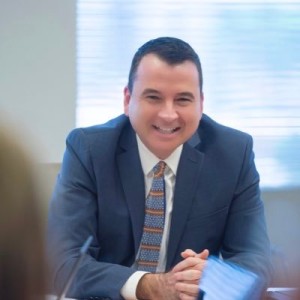
Sunday Jul 19, 2020
Sunday Jul 19, 2020
Tim Renick is an advocate for student success and equity in higher education. Tim has testified on strategies for helping university students succeed before the United States Senate and has twice been invited to speak at the White House. His work has been covered by the New York Times, the Wall Street Journal, Time, and CNN and cited by President Obama. In this two-part series of the Digital2Learn podcast, Tim shares practical strategies for prioritizing student equity in higher education.
Resources
Georgia State’s approach to student success: http://success.gsu.edu/
Tim’s presentation at the New York Times Higher Ed Leaders Forum #nythighered: https://m.youtube.com/watch?v=04_TMsigejY
Connect with Tim on LinkedIn
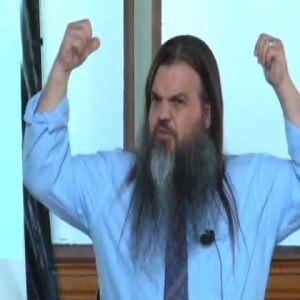
Sunday Jul 12, 2020
Sunday Jul 12, 2020
Bryan Alexander is an internationally known futurist, researcher, writer, speaker, consultant, and teacher, working in the field of how technology transforms education. Bryan has been featured in the Washington Post, MSNBC, The Wall Street Journal, US News and World Report, National Public Radio, the Chronicle of Higher Education, the Atlantic Monthly, Reuters, the National Association of College and University Business Officers, Pew Research, Campus Technology, The Hustle, and the Connected Learning Alliance. In this two-part series of the Digital2Learn podcast, Bryan shares data, trends, and futurist ideas to tell us what to look for in higher education in 2021 and beyond.

Sunday Jul 05, 2020
Sunday Jul 05, 2020
Bryan Alexander is an internationally known futurist, researcher, writer, speaker, consultant, and teacher, working in the field of how technology transforms education. Bryan has been featured in the Washington Post, MSNBC, The Wall Street Journal, US News and World Report, National Public Radio, the Chronicle of Higher Education, the Atlantic Monthly, Reuters, the National Association of College and University Business Officers, Pew Research, Campus Technology, The Hustle, and the Connected Learning Alliance. In this two-part series of the Digital2Learn podcast, Bryan shares data, trends, and futurist ideas to tell us what to look for in higher education in 2021 and beyond.
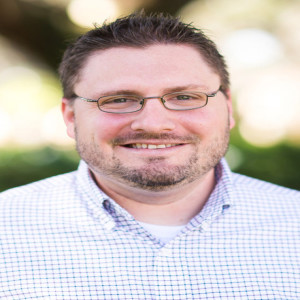
Sunday Jun 28, 2020
Sunday Jun 28, 2020
Andy Miller, a strategic leader in higher education partnerships and innovation, joins the Digital2Learn team in a two-part series on partnerships and pathways for student success in online and distance learning in higher education.

Sunday Jun 21, 2020
Sunday Jun 21, 2020
Andy Miller, a strategic leader in higher education partnerships and innovation, joins the Digital2Learn team in a two-part series on partnerships and pathways for student success in online and distance learning in higher education.

Sunday Jun 14, 2020
Sunday Jun 14, 2020
In this two-part series, the Digital2Learn team speaks with Jim Weaver, a quantum developer advocate for IBM. In Part 1, Jim shares about his professional journey and explains how an increased understanding of the quantum realm can impact our everyday lives. In Part 2, Jim highlights specific educational partnerships that he has designed and developed to bridge the gap between education and industry and to get children and adults alike excited to learn about quantum computing.

Sunday Jun 07, 2020
Sunday Jun 07, 2020
In this two-part series, the Digital2Learn team speaks with Jim Weaver, a quantum developer advocate for IBM. In Part 1, Jim shares about his professional journey and explains how an increased understanding of the quantum realm can impact our everyday lives. In Part 2, Jim highlights specific educational partnerships that he has designed and developed to bridge the gap between education and industry and to get children and adults alike excited to learn about quantum computing.
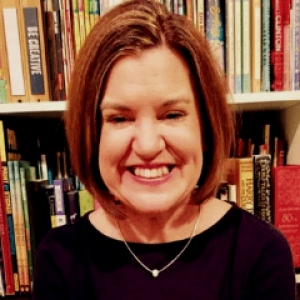
Sunday May 31, 2020
Sunday May 31, 2020
Olivia Van Ledtje (@thelivbits) is an 11-year-old who is smart about all things sharks. She hopes to be an ichthyologist and work to save sharks all over the world. A seasoned keynote speaker, Liv’s work on LivBits has been featured internationally as a model of digital good. An accomplished ballerina, Liv has participated in summer intensives in Chicago and New York City. Liv is an avid reader and Pop Tart-eater, living in Durham, New Hampshire, with her family.
Cynthia Merrill (@cyndisueboo) is a consultant, speaker and teacher dedicated to strengthening literacy experiences for all students. She works in diverse school communities throughout the U.S .coaching, training and encouraging administrators and teachers in their practices. Merrill is passionate about creating authentic opportunities for students to document their thinking using tech tools.
#digitalcitizenship #feedbackloop #kidscanteachus #sparkchange #digitalliteracy #literacy
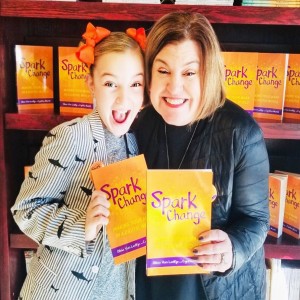
Sunday May 24, 2020
Sunday May 24, 2020
Olivia Van Ledtje (@thelivbits) is an 11-year-old who is smart about all things sharks. She hopes to be an ichthyologist and work to save sharks all over the world. A seasoned keynote speaker, Liv’s work on LivBits has been featured internationally as a model of digital good. An accomplished ballerina, Liv has participated in summer intensives in Chicago and New York City. Liv is an avid reader and Pop Tart-eater, living in Durham, New Hampshire, with her family.
Cynthia Merrill (@cyndisueboo) is a consultant, speaker and teacher dedicated to strengthening literacy experiences for all students. She works in diverse school communities throughout the U.S .coaching, training and encouraging administrators and teachers in their practices. Merrill is passionate about creating authentic opportunities for students to document their thinking using tech tools.
#digitalcitizenship #feedbackloop #kidscanteachus #sparkchange #digitalliteracy #literacy




